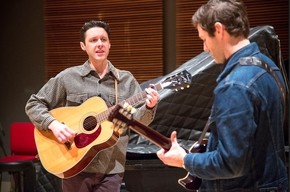
With the music industry enduring losses due to heavy amounts of piracy and the lowered cost of digital music, naturally venues and bars allowing music performance will be affected in some way. Local musicians, therefore, are also impacted by new copyright laws, reformed from the Copyright Act of 1976. The reformation of copyright laws affect local musicians in both positive and negative ways such as by restricting the performance of covers unless the venue pays a licensing fee, allowing any original music performed by the musician to be copyrighted automatically, and ensuring musicians are compensated through their performance rights organizations.
New Copyright Law News and Information
Jason Wheeler, in his article “Paying for the music: Local bars, musicians open up about copyright fees”, explains that venues now have much more restriction when it comes to playing music that is registered under BMI, ASCAP, and other music performance rights organizations. He states that factors such as the average number of attendees at the venue play a role in how much a venue pays, which can range from $400 to
$700 per organization every year.
This has created problems with the local musicians of the same article, who state that many venue owners are now asking for them to play original music only, where it used to be the opposite in which venue owners would ask that the performer plays covers.
New Copyright Laws Effects on Local Musicians
New music copyright laws, however, do allow local musicians to retain all intellectual property, regardless of whether it is registered under music performance rights organizations. Professionals, like those at Carter West, know how to navigate intellectual property laws. Technically any recorded piece of thought, in this case music, is copyrighted. Teachingcopyright.org, a website that discusses the affects of copyright law on musicians and other artists, explains that the author/creator of any music creation, as long as it is tangible, is automatically copyrighted as soon as it is made. Even scribbling down song lyrics onto a napkin is acceptable, provided that it is tangible.
If registered with a music performance rights organization, the local musician is guaranteed payment. Copyright laws in this case allow the musician to get paid for performance any time their song is played with streaming services, radio, live, etc.
New copyright laws protect local musicians and their rights in some ways while restricting them in others. While original music is copyrighted at all times, consent must be given in order to perform covers.
